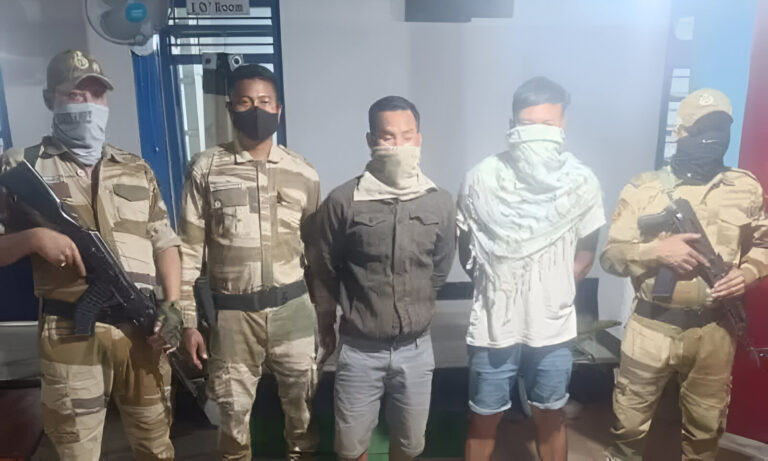Manipur Film Fraternity Mourns the Death of Debkumar Bose
Summary
Debkumar Bose, a pioneer of Manipuri cinema and director of the state’s first full-length feature Matamgi Manipur, has passed away at the age of 91. Bose’s work significantly shaped Manipuri cinema despite his Bengali roots, and he was known for his sensitive storytelling style. The Manipuri film community recently held a vigil in his memory, honoring his contributions to the region’s cinematic heritage. His influence will continue to inspire filmmakers for generations.
The Legacy of Debkumar Bose: Shaping Manipuri Cinema
Debkumar Bose, a name synonymous with the birth of Manipuri cinema, passed away on October 18, 2024, at the age of 91. His demise marks the end of an era for a cinematic community that he deeply influenced. The contribution Bose made to Manipuri cinema goes beyond just directing the state’s first full-length feature film; it’s about how he bridged cultures, embraced challenges, and left an indelible mark on Indian cinema.
But how did a Bengali filmmaker come to be so revered in Manipuri cinema? What exactly did Debkumar Bose achieve, and why will his legacy endure? Let’s dive into the life of this cinematic giant and explore his lasting impact on Manipuri cinema.
A Storied Beginning: Debkumar Bose’s Early Life and Film Roots
Born on September 21, 1933, in a family steeped in cinematic history, Debkumar Bose inherited a legacy from his father, Debaki Bose, a renowned filmmaker in Bengal. His father’s work, Seeta (1934), became the first Indian film showcased at an international festival (the Venice Film Festival), cementing the family’s connection to cinematic innovation. From an early age, Debkumar was exposed to filmmaking as an art form—a medium of storytelling with deep emotional and cultural roots.
However, despite his background in Bengali cinema and his father’s influence, Debkumar Bose took a unique turn in his career, focusing his talents on Manipuri cinema, a film industry in its nascent stages. How did he transition from one cinematic culture to another, and what motivated him to take on this challenge?
Breaking Boundaries: The Making of Matamgi Manipur
In 1972, Debkumar Bose directed Matamgi Manipur, the first full-length feature film in the Manipuri language. This film did more than just establish a new chapter for Manipuri cinema—it addressed the tensions between modernity and tradition in Manipuri society, focusing on the disintegration of family structures under the pressures of modernity. His direction was characterized by emotional depth and subtlety rather than melodrama, setting him apart from many filmmakers of the time.
Despite not speaking Meiteilon, the local language, Bose’s approach was both empathetic and respectful of Manipuri culture. He worked closely with local actors and crew members to bring the story to life. This dedication to cultural authenticity, combined with his nuanced storytelling style, made Matamgi Manipur a landmark film not just in the state but in Indian cinema as a whole.
The film received national acclaim and was awarded a prestigious Presidential Medal, signaling its profound cultural and cinematic impact. But Bose’s achievements didn’t end there. His contribution laid the groundwork for the future of Manipuri cinema, allowing the local industry to flourish.
Influence Beyond Boundaries: Impact on Indian Cinema
Before his contribution to Manipuri cinema, Debkumar Bose had already made a name for himself in Bengali cinema. He worked alongside legendary directors like Satyajit Ray, Mrinal Sen, and Ritwik Ghatak—icons in the Indian cinematic landscape. His directorial projects in Bengali cinema, such as Dadathakur (1962), earned him recognition for his ability to portray complex narratives and layered characters.
Bose’s cinematic vision wasn’t confined to one region or language. His works explored universal themes such as the conflict between tradition and modernity, societal transformation, and the human condition, all told through his sensitive, emotional lens. His success in both Bengali and Manipuri cinema demonstrates his versatility and profound understanding of storytelling across cultures.
The Cultural Shift: The Evolution of Manipuri Cinema Post-Matamgi Manipur
Debkumar Bose’s success with Matamgi Manipur opened doors for the evolution of Manipuri cinema. The film industry in the state, which had been relatively underdeveloped, began to grow, inspired by his innovative approach to filmmaking. Directors and producers in the region found confidence in telling local stories on a grand scale, knowing that Bose had paved the way with his culturally respectful and artistically impactful work.
The next generation of Manipuri filmmakers started exploring deeper narratives rooted in their culture, ranging from social commentaries to the preservation of local traditions. Bose’s storytelling approach, which focused on emotional depth over dramatic embellishment, became a blueprint for many filmmakers in the region.
Honoring His Legacy: A Candlelight Vigil in His Memory
To honor his immense contributions to Manipuri cinema, the Manipur State Film Development Society (MSFDS) and the Film Forum Manipur held a candlelight vigil at the MSFDS complex. This somber yet heartfelt event commemorated not just the man but the movement he began. The film community gathered to pay their respects, offering prayers for his soul to rest in peace.
The event was more than a memorial; it was a celebration of the cultural revolution Bose sparked in Manipuri cinema. Filmmakers, actors, and cinema lovers alike reflected on his legacy, and many spoke of how his work inspired them to delve deeper into their craft and embrace the unique stories of Manipur.
A Legacy that Lives On: Bose’s Enduring Influence
Even in his passing, Debkumar Bose’s influence continues to resonate. His contribution to Manipuri cinema is more than a chapter in the region’s cinematic history—it’s the very foundation upon which the industry was built. Filmmakers in Manipur today look to his work as a source of inspiration, drawing from his storytelling techniques, cultural respect, and innovative approach.
Bose’s impact reaches far beyond the boundaries of Manipur. His legacy is a testament to the power of cinema as a medium for cultural exchange, a way to tell stories that connect people from different backgrounds and experiences. For generations to come, Debkumar Bose will remain a guiding light in Indian cinema, reminding filmmakers of the importance of authenticity, cultural representation, and emotional depth in storytelling.
FAQs
- Who was Debkumar Bose?
Debkumar Bose was a renowned filmmaker who directed Matamgi Manipur, the first full-length Manipuri film, and made significant contributions to both Bengali and Manipuri cinema. - What is Matamgi Manipur about?
Matamgi Manipur is a film that explores the tension between tradition and modernity in Manipuri society, particularly focusing on family structures and their evolution. - Why is Debkumar Bose significant to Manipuri cinema?
Bose directed the first full-length Manipuri feature film, helping to shape the region’s cinematic identity and inspire future filmmakers. - How did the Manipuri film community honor Debkumar Bose after his passing?
The Manipuri film community held a candlelight vigil in his memory, organized by the Manipur State Film Development Society (MSFDS) and the Film Forum Manipur. - What was Bose’s storytelling style?
Bose was known for his sensitive, emotionally deep, and subtle storytelling, which avoided melodrama and focused on cultural authenticity.



